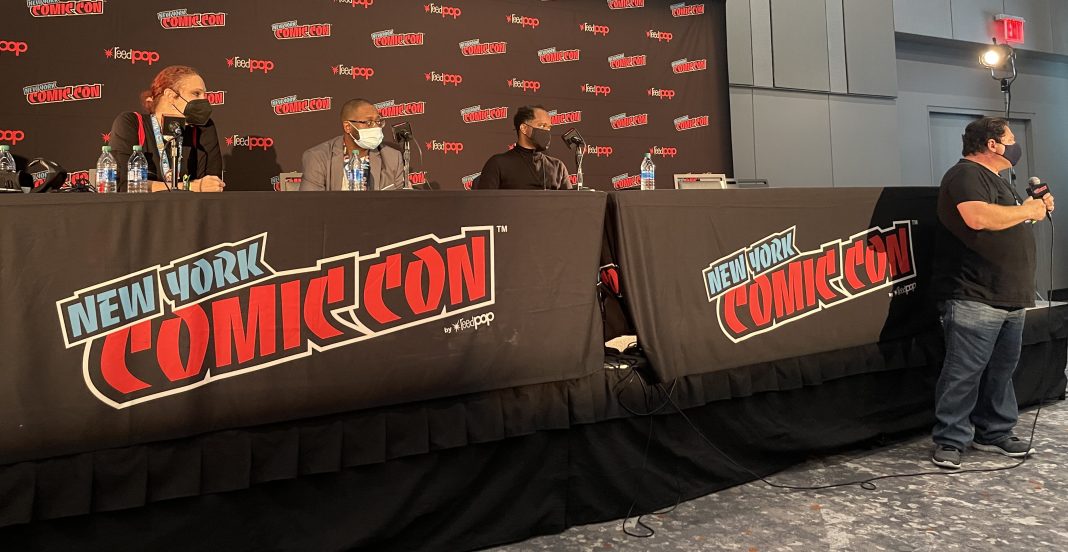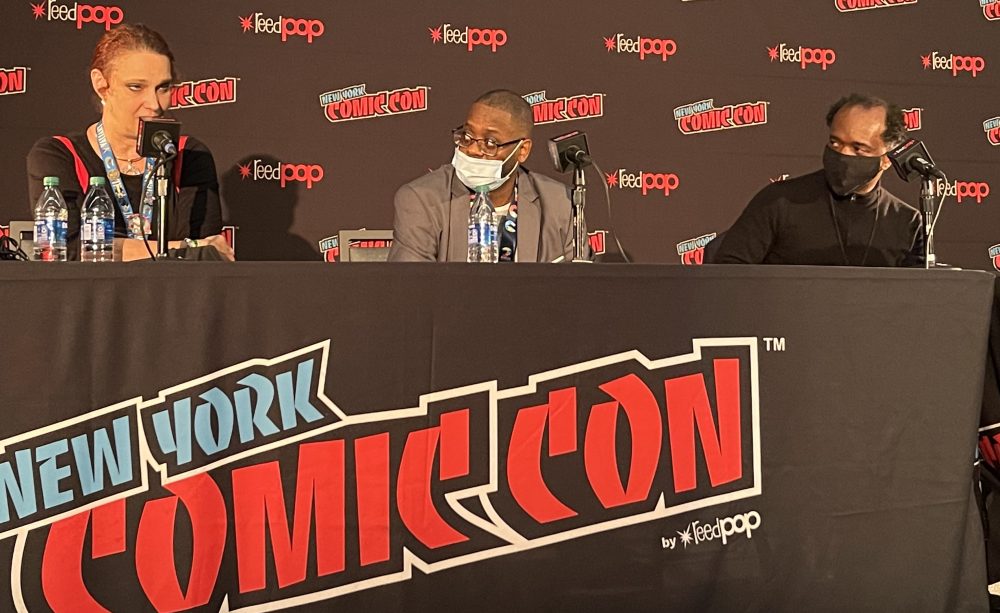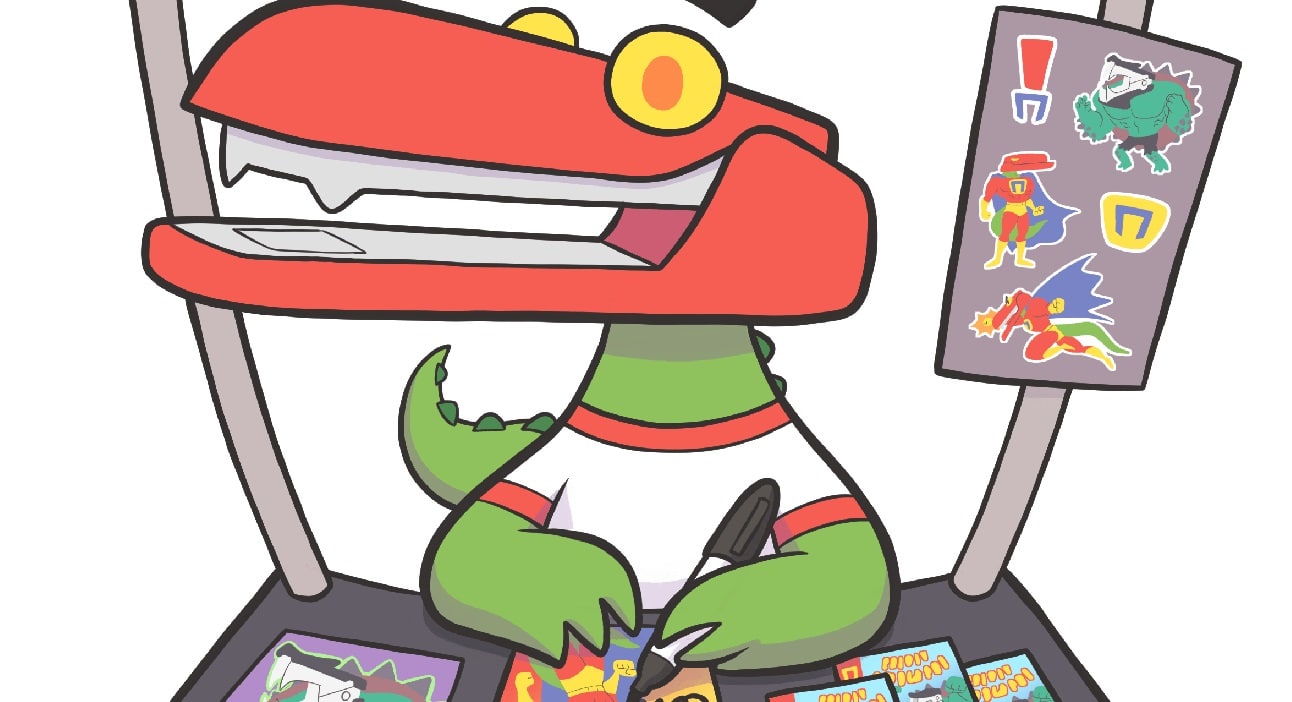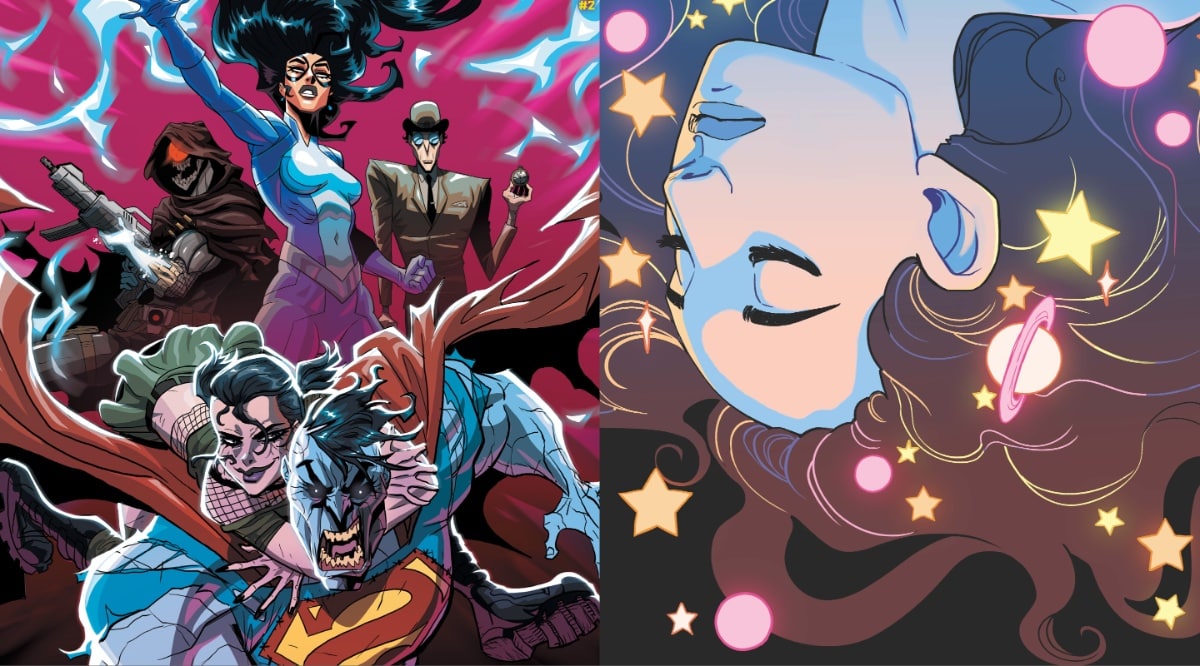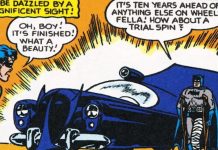On Thursday, October 7th at 6:45pm, as the first day of New York Comic Con 2021 started to wind down, writer Buddy Scalera moderated a panel entitled “Building Relationships with Publishers and Editors” as part of his ongoing series of Comic Book School panels that have been a staple of New York Comic Con and beyond for several years. The first of several panels Scalera would host for NYCC 2021, the panel included Pronto Comics editor and board member Dennis Knight, Valiant Entertainment senior editor Lysa Hawkins, and Heavy Metal executive editor Joseph P. Illidge, who was recently minted as a new addition to the CBLDF Board of Directors alongside Amy Chu and Pam Noles. Marvel editor Darren Sanchez was initially announced as a guest on the panel, but was not in attendance.
As is typical of Scalera’s conversational hosting style, he didn’t sit with the panelists at the table or stand behind the podium, instead opting to walk in front of the stage in a way that brought him closer – physically and thematically – to the audience. He encouraged the audience, which was initially spread out across the 300-seat capacity room 408 of the new wing of the Javits Center, to move closer to the stage, thereby reinforcing the communal atmosphere he tries to establish in his educational panels for aspiring comic book creators. This panel, he explained, was for anyone interested in “becoming an editor, working with an editor, or just taking your career to the next level.”
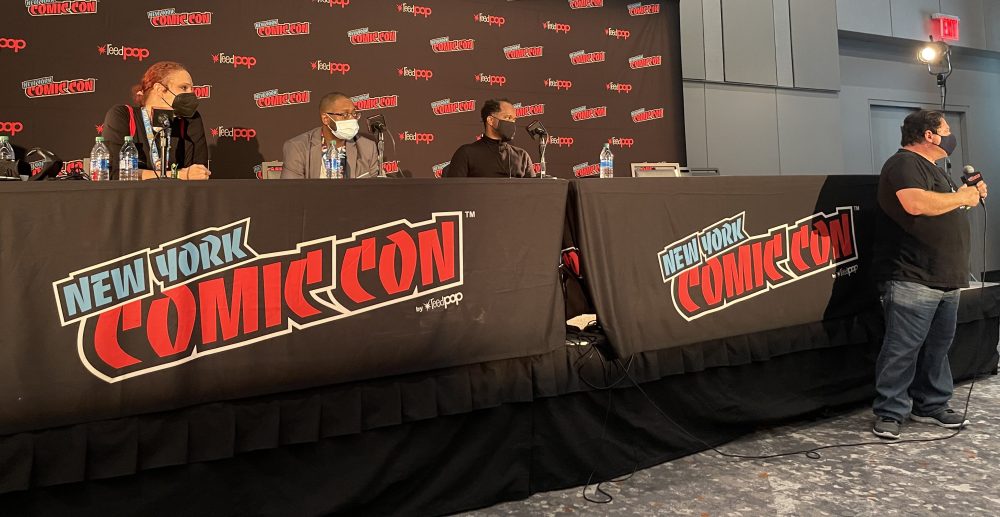
After some housekeeping and introductions, including promoting his latest anthology showcasing new talent in the comics industry, he kicked off the panel proper by asking the panelists to share their story of how they became comic book editors.
Illidge started out as an unpaid intern for Milestone Media in 1993. Despite “blowing the interview” a friend stuck up for him and convinced the fledgling publisher of groundbreaking titles like Icon and Static to hire him. After three months he explained that while he was grateful for the opportunity, he had to leave to find paid work. Later that same day, he was offered a part-time position at Milestone, allowing him to build his career from there.
Dennis Knight had a more straightforward “breaking-in” story. His friend, Pronto Comics Editor-in-Chief Dominic Sparano, simply asked Knight if he wanted to be an editor, and Knight agreed. He has since remained with the publisher for nine years.
As for Lysa Hawkins’ “secret origin” she explained that while she always liked comics, when she was younger she “never thought” she’d work in the industry. She studied mythology in college, “and what are comics but modern myths? But it never occurred to me until I I was driving across the country… feeling sorry for myself… stopping along the way to pick up Wolverine.” She realized when she was “halfway across the country” that since she loved comics so much, she might as well cold-call Marvel, which at that time was based in New York City. She got an interview, but was so sure that she “did terribly” that she took another job in the weeks before eventually getting a call from Virginia Romita, the wife of her favorite Spider-Man artist, John Romita Sr. Being Virginia’s assistant in production was her “foot in the door” and she enjoyed it but she wanted to work in editorial and kept getting passed up in favor of one “male editorial intern” after another. After “knocking on that door” four times, she was finally given an editing opportunity and got the job. She was afraid they might rescind the offer because at that moment, she revealed she was three months pregnant, but “they said ‘so what?’ And I was there for many years… until I got a call from (DC’s) Batphone. You always take a call from the Batphone.”
As the panel continued, Scalera and the panelists got deeper into the nuts and bolts of an editor’s day-to-day life. Following her appearance on a panel earlier that day called “What Gru Knew (and you should too” in tribute to the beloved late Marvel editor and writer Mark Gruenwald, Hawkins noted that she’s creating for Valiant her own version of the Assistant Editor School that Gruenwald created for Marvel.
Illidge emphasized that one of the jobs of an editor is be an advocate for creators and “help them get paid.” That includes “being their point-of-contact” to the outside world, as comic book creation can be an isolating job that has only been exaserbated by the pandemic. An editor is also a “caretaker of intellectual property… working on Batman comes with some serious responsibilities.”
Knight implored newer creators not to overextend themselves as they try to establish themselves within the comics industry. “Don’t blow your budget,” he said. “Stay within your means.”
“I have so much sympathy for creators these days” Illidge added, as newer creators are expected not just to produce high-quality work, but to market their own work and maintain a brand. “That takes a lot of work. That takes a lot of energy.”
All the panelists agreed that networking, while difficult, is important for building a career, although it’s different for everyone. “Sometimes the best form of networking is to not try,” Illidge explained, as sometimes a creator will build a strong enough brand through their independent work that editors will find them. But he used Taarna writer Stephanie Phillips as an example of a writer who landed a gig at Heavy Metal and elsewhere by staying in touch with editors while continuing to produce strong independent work for many years.
Relationships are crucial, Hawkins explained. “I like to think that creators work for me, not for Valiant… you’re protecting both your freelancers and your characters at all times.”
The panel was chock-full of pearls of wisdom from Scalera and all the panelists, too many to list here without simply producing a transcript of everything that was said on the panel. But after the Q+A session, they each gave one piece of advice to the audience:
Hawkins: “Go to the bar and hang out with people. But you don’t have to drink!”
Knight: “Don’t blow your budget putting your first book together. Stay within your means.”
Illidge: “As soon as you get your foot into comic books, get two things – a good accountant, and a financial counselor.”
Scalera: “Don’t wait for permission. You don’t need permission.”
Miss any of our other NYCC ’21 coverage? Click here to check it out!


